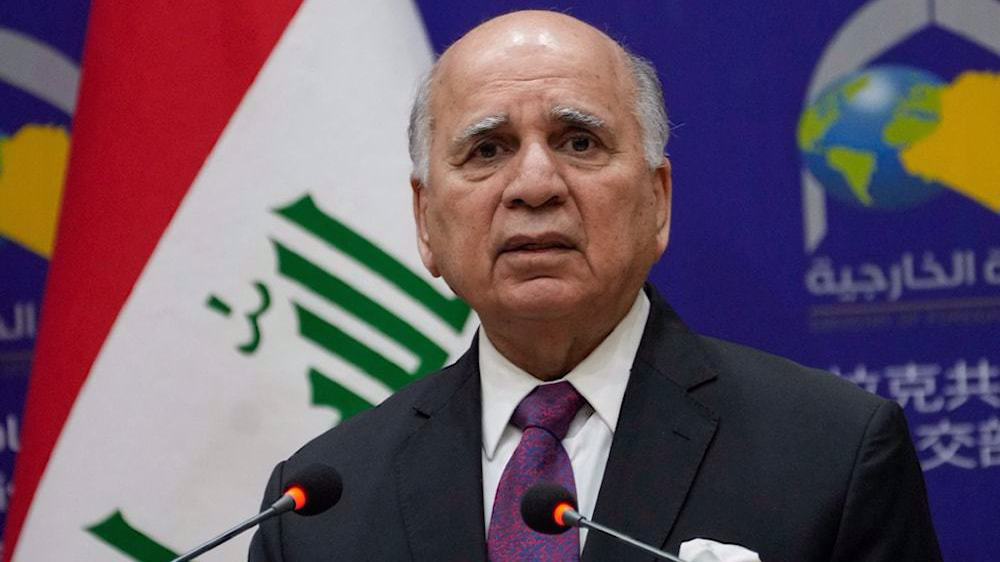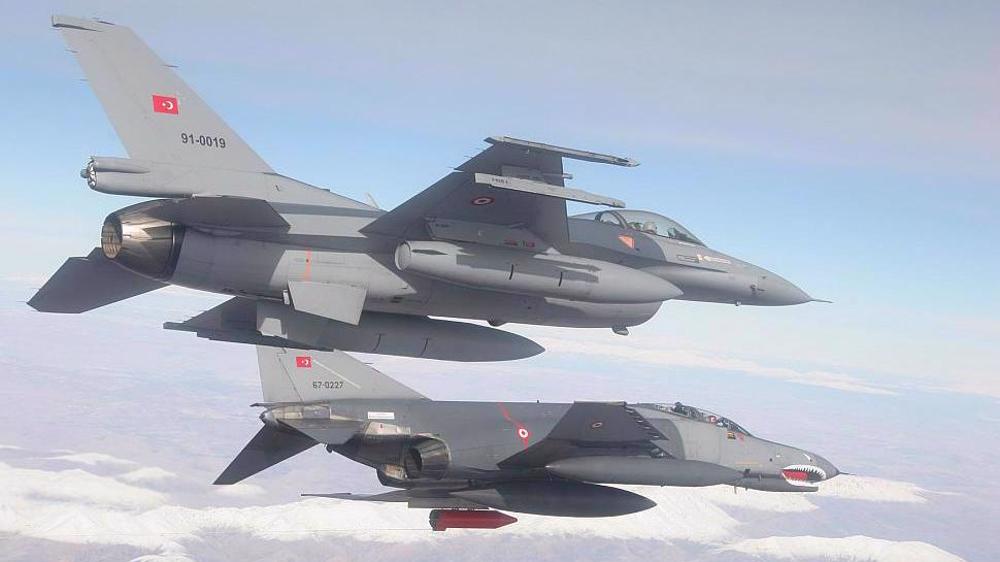PMU official: US only concerned about looting Iraqi oil, never thinks about nation
An official from Iraq’s Popular Mobilization Forces or Hashd al-Sha’abi says Washington only seeks to loot the Arab country’s crude oil, stressing that US officials are unconcerned about the Iraqi nation and their woes.
“The United States simply intends to exploit the needs of our people to achieve its own goals,” Iraq's al-Ahad television network quoted Qais al-Khazali, leader of Asa'ib Ahl al-Haq, which is part of the PMU, as saying in a televised speech on the occasion of Eid al-Adha (Feast of Sacrifice) on Friday.
He stressed that US President Donald Trump is only thinking about how to take control of Iraqi oil fields and how to secure agreements in the field of electricity with the Iraqi government.
Khazali then called upon the incumbent Baghdad government to quickly implement the framework agreement that the previous administration signed last year with German industrial conglomerate Siemens to upgrade the electricity grid of the power-strapped country.
The Trump administration is pushing for a deal between Washington, Baghdad and six Persian Gulf states to connect Iraq's nationwide power grid to that of the Persian Gulf Cooperation Council (GCC).
“Can the government not succumb to US pressure?” al-Khazali asked, underlining that the completion of the agreement is “a sovereign decision.”
Iraq relies on Iran for trade and natural gas that generates as much as 45% of its electricity. Iran transmits another 1,200 megawatts directly, making itself an indispensable energy source for its Arab neighbor, but the United States is trying to pry Baghdad away from Tehran’s orbit.
The US has been enlisting its companies and allies such as Saudi Arabia to replace Iran as Iraq’s source of energy.
Khazali warned against attempts by certain foreign media outlets to take advantage of renewed overnight anti-government protests.
“Some media outlets that receive money from abroad have driven the youth to pessimism and despair. They openly encourage the conflict. There are dangerous plans in order to profit from protests,” he pointed out.
People have recently taken to the streets of Iraq's capital and other cities in demonstrations against corruption, unemployment and poor public services.
Mass protests erupted across central and southern Iraq in October 2019, forcing former prime minister Adel Abdul Mahdi to step down in the face of the rallies.
Some 550 people were killed in that wave of rallies and another 30,000 wounded.
Iraq's new Prime Minister Mustafa al-Kadhimi has promised a dialogue with protesters and has requested comprehensive lists of all those who have been killed and wounded throughout the months-long protests in a bid to put those accountable on trial and bring about compensation.
Back on May 25, Khazali strongly denounced US military presence in Iraq, saying such a deployment is meant to safeguard the security and interests of the Israeli regime.
“There is a national and courageous will, which rejects the presence of any foreign troops on Iraqi soil. There have been talks of US intentions to withdraw from Iraq, but we doubt them,” he said at the time.
The senior Hashd al-Sha’abi leader added, “The US [military] presence in Iraq is meant to protect the security and interests of the Israeli regime. Neither are we warlords nor thirsty for blood, but rather patriots looking for the dignity and sovereignty of the Iraqi nation.”
Anti-US sentiment has been running high in Iraq following the assassination of top Iranian anti-terror commander Lieutenant General Qassem Soleimani, the commander of the Quds Force of Iran's Islamic Revolution Guards Corps, and his Iraqi trenchmate Abu Mahdi al-Muhandis, the deputy head of the PMU, and their companions in a US assassination drone airstrike authorized by President Donald Trump near Baghdad International Airport on January 3.
Iraqi lawmakers approved a bill two days after the attack, demanding the withdrawal of all foreign military forces led by the United States from the country.
The US responded to the move by threatening crippling sanctions against the Arab country.
Israel has slaughtered 13000 students in Gaza, West Bank
VIDEO | More Zionist than Zionists: Biden’s legacy to be defined by Gaza genocide
Hamas confirms handing approval of Gaza ceasefire deal to mediators
VIDEO | Iran: Show of strength
UNRWA will ‘stay, deliver’ aid to Palestinians despite Israel’s ban: Lazzarini
Explainer: What makes Iran's Rezvan and Raad loitering munitions prized assets?
VIDEO | Unseen agony: Missing loved ones of genocide in Gaza
Iran cuts gold import tariff to zero













 This makes it easy to access the Press TV website
This makes it easy to access the Press TV website